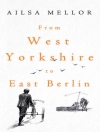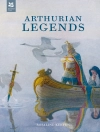In ‘The Night of Christmas Eve, ‘ Nikolai Gogol weaves a captivating tapestry of folklore and the supernatural imbued with a distinctly Russian spirit. Set in a picturesque Ukrainian village, the narrative revolves around the enchanting tale of the magical night preceding Christmas. Gogol’s use of vibrant imagery and rich, lyrical prose creates an immersive experience, blending humor with a sense of foreboding that captures the essence of Slavic mythology. The story is steeped in themes of love and destiny, reality and fantasy, characteristic of the Romantic literary period in which Gogol was working. Gogol, a genius of 19th-century Russian literature, was born in Ukraine, where he was deeply influenced by the local folklore and the ethos of rural life. His experiences and observations of the cultural idiosyncrasies of the Russian Empire permeate his works. Notably, Gogol’s early life exposed him to a myriad of superstitions and traditions which he skillfully infused into his storytelling, establishing a connection between the magical and the mundane. This enchanting tale invites readers to explore the whimsical realms of Gogol’s imagination. It is an essential read for lovers of folklore and anyone interested in the rich cultural tapestry of Eastern Europe. ‘The Night of Christmas Eve’ will not only entertain but also provoke reflection on the interplay between destiny and human action, making it a timeless classic in world literature.
Despre autor
Nikolai Vasilievich Gogol (1809–1852) was a preeminent Russian writer and playwright of Ukrainian origin, renowned for his contribution to Russian literature during the 19th century. Born in Sorochyntsi, the Poltava Governorate of the Russian Empire, Gogol was immersed in Ukrainian culture, which significantly influenced his writing. His unique blend of realism, romanticism, and the grotesque created a literary style that was innovative and somewhat surreal, often highlighting the absurdities of Russian society and bureaucracy.
Gogol’s work is marked by a complex interplay of themes, including identity, history, and the supernatural. These are most evident in his celebrated novel ‘Dead Souls’ and his short story collection ‘Evenings on a Farm Near Dikanka, ‘ which includes the story ‘The Night of Christmas Eve’ (also known as ‘Christmas Eve’). This tale, like many of his others, combines folklore with a satirical edge, typifying Gogol’s ability to weave fantasy with biting social commentary.
His body of work, though not extensive, has had a lasting impact on Russian literature, influencing luminaries such as Fyodor Dostoevsky and later writers. Gogol’s attention to detail and the vividness of his prose have established his reputation as a master storyteller and an important figure in the Russian literary canon. His legacy continues to inspire readers and scholars with its enduring humanity and imaginative depth.












